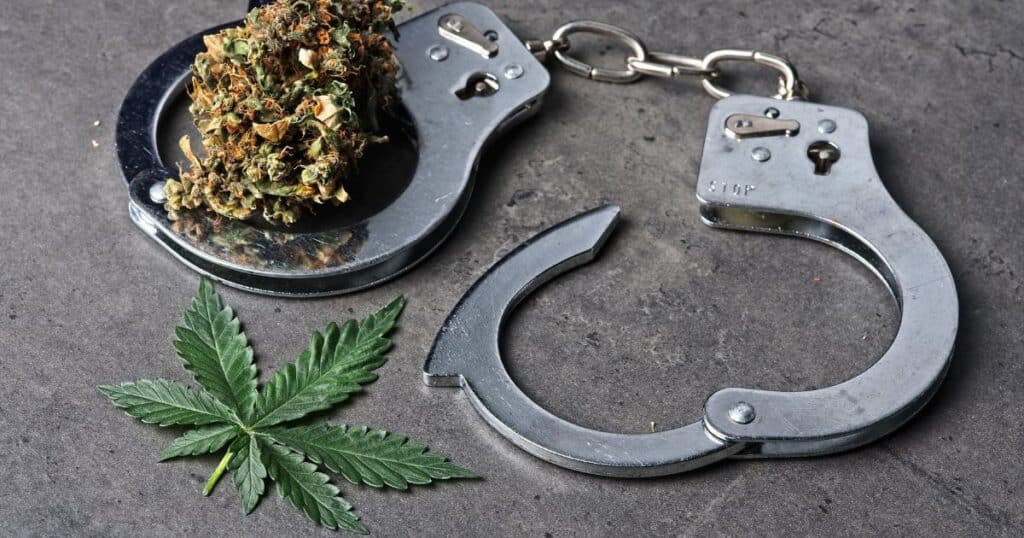Marijuana reform continues to be a hot topic across the United States, and Texas is no exception. While state-level initiatives have faced challenges, local efforts of marijuana decriminalization paint a different picture. In a significant move, three Texas cities—Dallas, Bastrop, and Lockhart—voters have decided to decriminalize small amounts of marijuana for personal use. This shift not only reflects changing public attitudes but also highlights the complex landscape of marijuana legislation at both state and local levels.
Lone Star State’s Local Approach to Marijuana Decriminalization
Dallas, the third-largest city in Texas, along with the smaller cities of Bastrop and Lockhart, recently passed measures to decriminalize the possession of four ounces or less of marijuana. These decisions follow successful campaigns driven by Ground Game Texas, an advocacy group focused on grassroots change.
🌿 Weed Did It, Dallas! 🌿
— GroundGameTX (@GroundGameTX) November 6, 2024
Prop R has passed! Together, we’ve taken a big step toward justice, freedom, and a better future for our community. This is more than a victory for marijuana decriminalization—it’s a win for the people of Dallas! 💚 pic.twitter.com/yI26LKRity
In Dallas, voters approved Proposition R, with about 67% in favor. Similarly, in Bastrop and Lockhart, Propositions M and A were passed with 69% and 67% approval rates, respectively. These measures signify a growing trend among Texas cities to address marijuana possession through local ordinances despite the state’s broader prohibition of cannabis reform.
The new ordinances prohibit city police from arresting individuals for possessing small amounts of marijuana, except under specific circumstances. They also prevent law enforcement from using the smell of marijuana as probable cause for searches and seizures. Furthermore, city funds cannot be used to test substances to determine whether they qualify as marijuana, except in limited cases.
This move towards marijuana decriminalization is expected to alleviate some of the burdens on the local justice system. Advocates for these measures argue that it will reduce the number of misdemeanor arrests and help prevent jail overcrowding due to minor offenses. It also aligns with broader social justice goals, as data shows disproportionate arrests of Black and Latino individuals for marijuana-related offenses.
Ground Game Texas has been instrumental in pushing these measures onto local ballots. With a focus on what they call a “trickle up” strategy, the organization aims to enact change at the city level, creating momentum that could eventually influence state policy. Dallas, Bastrop, and Lockhart join Austin, San Marcos, Killeen, Elgin, Denton, and Harker Heights as cities in Texas that have decriminalized small amounts of marijuana for personal possession.
Marijuana Legislation Despite State-Level Setbacks
While local efforts in Texas show promise, statewide marijuana initiatives have struggled. Recent ballot measures in Florida, Nebraska, South Dakota, and North Dakota highlight these challenges. Only Nebraska made headway with a medical marijuana initiative, but legal hurdles have stalled its implementation. Meanwhile, states like Florida, North Dakota, and South Dakota failed to pass adult-use measures, indicating significant resistance at higher legislative levels.
Despite setbacks at the state level we saw during this voting season, local decriminalization efforts are gaining traction. They reflect a growing recognition of the need for sensible cannabis policies that align with public opinion. In Texas, where statewide change seems unlikely in the near future, cities like Dallas, Bastrop, Lockhart, Austin, San Marcos, Killeen, Elgin, Denton, and Harker Heights are leading by example.
While the recent decriminalization measures are a step in the right direction, challenges remain. The Texas Attorney General’s office has previously challenged similar ordinances, but some courts have dismissed those lawsuits. The Republican-led state legislature, which reconvenes in January, may also pose obstacles to further marijuana reform.
Public opinion plays a crucial role in shaping marijuana policy. As more Texans support decriminalization and legalization, lawmakers might feel pressured to reconsider their stance.
The recent decriminalization of marijuana in Dallas, Bastrop, and Lockhart marks a significant milestone in Texas’s approach to cannabis policy. These local measures highlight the power of grassroots organizing and demonstrate the potential for change, even in the face of state-level challenges.
For Texas residents and policymakers alike, these developments offer valuable lessons. They highlight the importance of community-driven initiatives, especially in the cannabis industry, and the need for policies that reflect the evolving attitudes toward marijuana. While the road to statewide reform may be long, these cities prove that progress is possible, one community at a time.





















